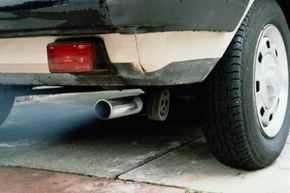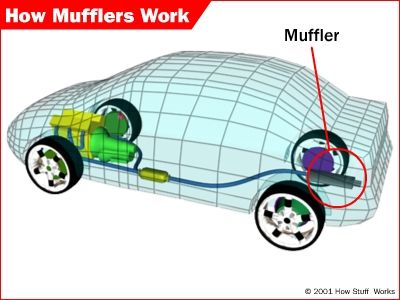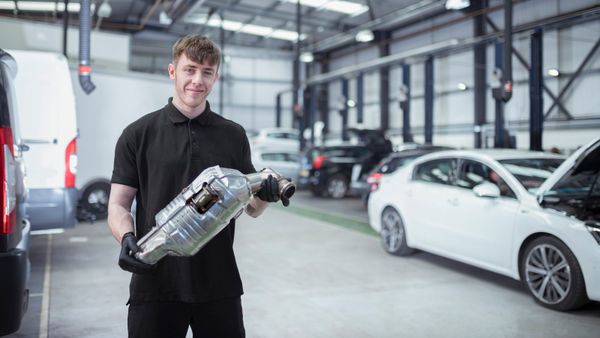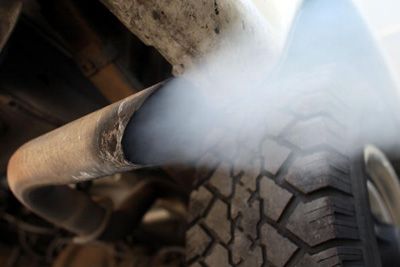Your car's exhaust system helps it run smoothly and quietly, and it's crucial if you want to stay up-to-date with your local environmental regulations. After the car has taken what it needs from fuel and converted it to energy, it needs to do something with the leftovers. The parts that shoulder this burden are:
- the exhaust manifold, which moves engine gases and heat into the exhaust system
- the catalytic converter, which reduces pollutants from the exhaust
- the resonator and muffler, which reduce noise
- assorted pipes to connect the components, including the tailpipe
- assorted hangers, clamps, brackets and gaskets
Major exhaust components are designed to last a long time, but there's no way to predict their true lifespan. This is because they're subject to a lot of factors that affect durability. They're made primarily of metal, which corrodes easily since they're under extremely high temperatures. The climate and environment in which you live play a bigger role than any engineer could guarantee. Your exhaust system is so important for safety and the environment, though, that it's usually covered by very long warranties.
Advertisement
The entire system won't fail spontaneously, but small problems can cause a ripple effect. Rubber gaskets and hangers are the source of most failures. Hangers are susceptible to drying, cracking and snapping caused by engine heat, environmental conditions and chassis flex. They're easy to check, though, and inexpensive to replace before they fail. Dry-rotted gaskets can allow corrosive gases to seep in and slowly destroy your catalytic converter, which is indicated by a rotten egg/sulfur odor. If an exhaust manifold gasket gives way, you'll probably hear a "fffttt" noise that sounds like a combination of blowing and flapping, most noticeable when the car is idle (at a stoplight, for example). If this gasket is worn, your car is leaking very hot chemicals, including carbon monoxide, that can have fatal consequences.
Metal should be checked over for corrosion or impact damage from rocks, speed bumps and the like. (Don't get near a hot exhaust, though!) If you live in an area that uses road salt in winter, frequent washes help remove the buildup that causes surface corrosion. You can also alter your driving habits to reduce premature damage. Avoid short trips with no warm-up period, because this allows acidic moisture from the engine to burn out the catalytic converter. Modern systems are built to withstand such heat, but allowing the car to warm up before taking off might help avoid interior corrosion [source: Allen].
Get exhaust problems fixed promptly. At best, a rattle from a broken hanger will slowly drive you crazy until the tailpipe breaks free; at worst, you're spewing toxic gases into the air, the trees and your own body. Your car won't pass its next state inspection, either. A properly functioning system will help your car run at its peak potential and with a minimum of environmental impact.
Keep reading for lots more information on maintaining a safe car.
Advertisement



